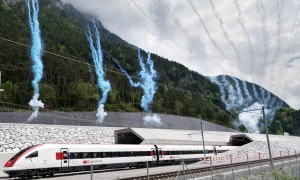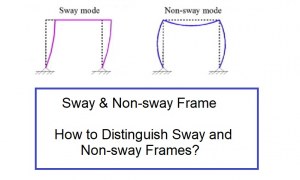🕑 Reading time: 1 minute
The construction/engineering sector is identified as the most corrupt sector in the world. Malpractices like extortion, bribery, and fraud in construction projects can have a damaging effect on the developing as well as the developed countries. As per the American Society of Civil Engineers, corruption accounts for around $310 billion of global construction market cost each year.
Corruption poses a great risk to construction and engineering companies; it increases the construction cost and time, and lowers the quality of infrastructure services delivered.
Corruption exists across all the different stages of a construction project, which in general can reduce the overall project benefits. Therefore, government bodies, construction organizations, and individuals are putting in huge efforts to conduct business in a transparent, honest, and fair manner to keep corruption away.
This article explains the prevalent modes of corruption in the construction industry and actions to prevent it.
Contents:
Why is the Construction Industry Corrupt?
Corruption in the construction industry is rampant in new construction contracts, refurbishment contracts, and maintenance contracts. Corruption in construction can be found at all levels of an organization. It can be found at levels of high ranking officials (diversion of funds) or by international companies offering bribes.
Transparency International’s Global Corruption Report lists out the devastating effects of corruption in the construction industry results in:
- Projects that are unreliable, dangerous, and unnecessary
- Damage to the company bringing tender uncertainty, economic damage, extortion, blackmail, and criminal prosecutions
- Damage to the individual which reduces morale and results in criminal prosecution, fines, and imprisonment
- The wastage of tender expenses
- Brand damage
- Reputational risk
The Table-1 below shows the various possibilities of corruption in various stages of construction projects.
Table-1: Corruption Found in Different Stages of Construction


Construction industry is prone to corruption due to the following reasons:
- Size and uniqueness of the project
- Complexity of project
- Large flow of public money
- Highly competitive nature of the bidding process
- Lack of transparency during the bidding process
- Tight margins and monopolistic nature of service delivery
- Close relationships between contractors, sub-contractors, and project owners
- Political interference and discretion in investment decisions
How to Prevent Corruption in Construction Industry?
Corruption in the construction industry can only be eliminated if the individuals involved in the construction projects co-operate to promote anti-corruption practices. These individuals are the project owners, contractors, consultants, suppliers, government, business, and professional associations.
All the parties involved in a construction project have the responsibility to prevent corruption. Corruption cannot be eradicated by a single or simple method. Both the public and the private sectors must follow comprehensive anti-corruption measures as an integral part of project and construction management.
Some important and specific anti-corruption actions that must be taken by various participants of infrastructure projects are explained below. These action statements are put forward by the World Federation of Engineering Organization- Anti-corruption Standing Committee.
The actions are classified for three main participants of a construction project. They are the engineers, the government, and the organization.

1. Anti-Corruption Action by Engineers in Construction Sector
The engineers involved in a construction project play an important role in preventing corruption. They act and perform based on their professional and ethical duty.
Individual Engineers
Engineers are employed either by the government, funders, consulting engineers, contractors, or project owners. They have the potential to influence the anti-corruption measures put forward by their respective organizations. So, the specific steps that must be taken by engineers are:
- Avoid participation in any activity that appears fraudulent.
- Try to report any activity that is suspicious.
- Abide by the ethical code of professional institution.
- Encourage the organization to adopt anti-corruption measures
Professional Engineering Institutions
These institutions represent individual professionals who significantly influence the formation or implementation of policies related to infrastructure. They ensure the integrity of their profession in their own country. These may be government or corporate policies. Hence, professional institutions must take the following steps:
- Adopt and promote ethical codes that express prohibition of corruption.
- Publicly speak out against corruption.
- Provide anti-corruption training and guidance to all the members and engineering students.
- The adoption and implementation of anti-corruption measures must be promoted.
- Work in collaboration with other governments, professional bodies, business associations, and companies to develop a coordinated approach to prevent corruption.
2. Anti-Corruption Actions by Government in Construction Industry
The government must take the following steps against corruption:
- The implementation and maintenance of anti-corruption measures must be made legal for public sector infrastructure and construction companies that bid on public sector projects.
- Ensure that the controls exist to prevent extortion by an official in the matter of government approvals and permits.
- Ensure that the public sector employees are paid reasonably well and on time so that they do not resort to extortion.
- A reporting mechanism must be provided to report corruption to the authorities in a safe and confidential manner.
- An independent and properly funded body must be formed to investigate and prosecute the offenders. They must work honestly, fairly, and transparently without any interference from the government.
- The governments must cooperate in establishing an international court with jurisdiction for corruption offenses.
3. Anti-Corruption Actions by Organisations in the Construction Industry
This category includes project owners, project funders, and companies.
Project owners are the ones who own or develop a project. Project owners must implement and enforce proper anti-corruption measures within the organization. This can be achieved by:
- Training employees
- Publishing anti-corruption code of conduct
- Implementing effective financial and commercial controls
- Implementing anti-corruption measures for all projects
The project funders provide funds, guarantees, or insurance to the project. Therefore they must:
- Implement and maintain proper anti-corruption measures within the organization.
- Provide finance, insurance, and guarantees only for the projects that adopt anti-corruption measures.
The Companies provide works, materials, equipment, and other services for the project. Companies must:
- Implement and maintain proper anti-corruption measures within the organization
- Encourage anti-corruption measures
FAQs
Engineers influence the anti-corruption measures put forward by the respective organizations. The basic anti-corruption responsibilities of construction engineers are:
1. Avoid participation in any activity that appears fraudulent
2. Try to report any activity that is found suspicious
3. Abide by the ethical code of their professional institution
4. Encourage the organization to adopt anti-corruption measures
The construction industry is infamous for corrupt activities due to the following reasons:
1. Size and uniqueness of the project
2. Complexity of project
3. Large flow of public money
4. Highly competitive nature of the bidding process
5. Lack of transparency during the bidding process
6. Tight margins and monopolistic nature of service delivery
7. Close relationships between contractors, sub-contractors, and project owners
8. Political interference and discretion in investment decisions
Corruption in the construction industry results in:
1. Projects that are unreliable, dangerous, and unnecessary
2. Damage to the company bringing tender uncertainty, economic damage, extortion, blackmail, and criminal prosecutions
3. Damage to the individual, which reduce morale and results in criminal prosecution, fines, and imprisonment
4. The wastage of tender expenses
5. Brand damage
7. Reputational risk
Read More
Effective Communication on Construction Sites Means Better Productivity
Athens Acropolis: Geotechnical Features of the Bedrock of Western Civilization



